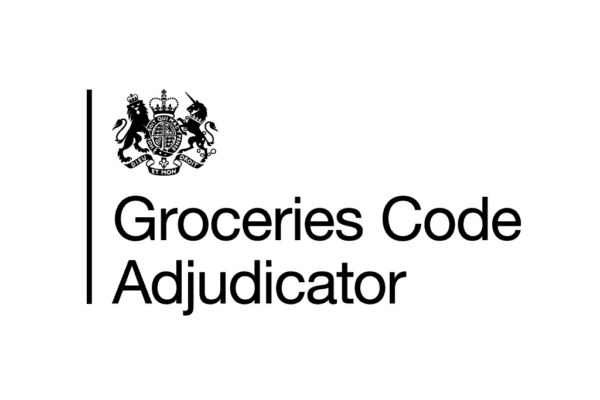MBM Glossaries: GSCOP Definition
Below, is a list of all of the coaching skills definitions you need when it comes to the GSCOP. Each question contains a keyword and its definition, to get you started on the basics of the topic and the frequently asked questions. Furthermore, you will also find helpful GSCOP tips and explanations mentioned across our website:
If you want to understand better how GSCOP works and, in particular, how it can affect you as a Supplier, Retailer, or Consumer, take a look at our GSCOP book.
In brief, when one company purchases or acquires another company, which is sometimes referred to as a takeover.
Here it means activities that reduce or prevent competition in a particular market.
An anti-Competitive Agreement or ACA is an agreement to co-operate between two or more competitors in the same market to prevent, restrict or distort competition. Some examples of ACA are dividing the market and fixing prices.
An independent third-party body that usually helps resolve disputes outside of court.
This is an inspection of a business by an official representative. And, as a result, it determines whether an institution, organisation, or business is compliant to set codes and standards in their industry.
This is a group of farmers or producers who collectively bargain with a processor instead of doing it individually.
The cost needed for a new player to enter the market.
Business Protection from Unfair Trading Regulations or BPR aims to protect businesses by prohibiting misleading business-to-business advertising and restricting how businesses compare their products from their competitors.
Employees of a retailer who directly purchase groceries for resale. It also includes those in charge of directly managing employees with those duties.
Also referred to as CCO. This is a third-party person who ensures businesses are compliant with regulations. And this individual is also responsible for investigating potential violations.
When businesses reach a mutually beneficial agreement for a sale or goods or services that have a common supplier or customer.
CMA is a government department in the United Kingdom that ensures that business competitions grow stronger. At the same time, they prevent anti-competitive practices. Also, CMA took over several functions of the now abolished Competition Commission and Office of Fair Trading.
The Competition Commission (CC) is a public body. It is responsible for investigating markets, mergers and other regulated industries relevant to the United Kingdom’s Competition Law. But in 2014, The CC closed and its functions were transferred to the CMA.
The state of abiding by established guidelines, code, or other rules that a particular industry has set.
This is also known as CCAS. It focuses on improving customer standards by approving codes of practise. This is done via code sponsors as approved by the CTSI or Chartered Trading Standards Institute.
Consumer Protection from Unfair Trading Regulations or CPR was created to protect consumers from misleading or unfair trading practices.
To stop purchasing groceries for resale from a Supplier. For the most part, the reason is irrelevant.
This is a retailer in the UK that has a grocery sales turnover exceeding £1billion. Indeed, retail giants such as Tesco, Waitrose, Aldi, and Marks & Spencer are in the list of designated retailers.
A report from a Supplier of an alleged breach of the code by a Designated Retailer. Conversely, a retailer can launch a dispute against a supplier.
Selling a product at a losing price with the intent of driving away the competition, in particular, to increase market share.
A term used especially in economics to describe when you accompany a small change in price by a large difference in the quantity demanded.
When a contracted Supplier obliges a retailer to purchase from them exclusively, and accordingly.
The amount that farmers charge to processors.
This a category of goods such as food, drinks, pet food, household goods, toiletries, and cleaning products.
Sometimes referred to as GCA, ‘Adjudicator’, or ‘Supermarket Ombudsman’, this is an independent body or person that oversees the enforcement of GSCOP within the United Kingdom. For example, Christine Tacon is the current Groceries Code Adjudicator
A 19-page Order that large grocery retailers in the United Kingdom need to adhere to. GSCOP is a part of this order.
In 2001, the Competition Commission launched an investigation into the groceries market. And, as a result, this investigation gave birth to the Supermarket Code of Practice that would govern relationships between suppliers and major supermarkets. However, despite the code of practice in place, complaints from smaller retailers and suppliers continued to rise, expressing outcry and dissatisfaction towards major UK supermarkets. Consequently, this prompted the UK’s office to launch several investigations which eventually led the Competition Commission to create ‘The Groceries Market Investigation Order’ in 2009. This included the Groceries Supply Code of Practice (GSCOP). And this is a 7-page document containing a set of codes and guidelines to help achieve a fair and harmonious relationship between Suppliers and major supermarkets.
This is a term used in economics. In short, a large change in price accompanies only a small change in the quantity demanded.
When a company that has a monopoly in a product or industry sets a price that makes it difficult for new players to enter the market and compete.
A company’s ability to dictate a price that would beat the competition. Meanwhile, you can also use Monopoly Power in place of Market Power.
Breaking down target markets into segments, in particular, to allow a more efficient and manageable approach to marketing. For example, you can segment an audience by behaviour, lifestyle, demographics, and other specific filters.
The extent of an audience in a particular market segment. For the most part, this helps determine whether it is worth pursuing a specific segment.
Expenses incurred that are related to the exchange of goods to a consumer or customer. In particular, this includes costs used to promote and distribute goods to the point of sale.
When companies join together to gain market share or strengthen assets.
OFT (OFT) was UK’s non-ministerial government department that acted as the country’s economic regulator. The office established the Fair Trading Act 1973 and ensured the healthy growth of business competition while weeding out unfair practices. And the office was abolished in 2014, and its functions were transferred to the CMA.
Another term commonly used to refer to The Groceries (Supply Chain Practices) Market Investigation Order.
Compensation provided for goods or services. In particular, this can be in the monetary form or otherwise.
When a business significantly lowers its prices with the intent of greatly reducing competitor sales or even pushing them out of the market.
When a company changes the price of a product or service depending primarily on the market trends. And the other end of the spectrum is to base price on cost-related reasons.
Employee’s from a retailer’s buying team who deal with buying from the supplier daily
Financial gain after deducting expenses incurred to create a sale.
Any offer, discount, or reduced retail price offered to the consumers for a limited amount of time.
These are basic materials that have to go through processing to become finished products.
Providing notice within a reasonable time-frame to inform affected parties of upcoming changes. And this includes the Supply Agreement length.
Recommended Retail Price or RRP is also known as the Manufacturer’s Suggested Retail Price (MSRP) or Suggested Retail Price (SRP)
Resale Price Maintenance or RPM is a practice where manufacturers and distributors agree to sell the product at certain price points.
A person or group of people in the United Kingdom who is/are in the business of selling Groceries.
Requests to change or amend previously set supply agreements to take effect from a date in the past. However, GSCOP prohibits these types of changes.
A person from the retailer’s buying team who manages the Supplier’s primary buyer.
This is the allowance made for a reduction in the takings of a business due to wastage or theft.
Anyone in the business of providing direct supply to any Retailer of Groceries for resale in the United Kingdom.
This is an agreement that is recorded in writing following Article 6(1).
A chain of organisation, events, people, and information needed to move a product or service from producers or suppliers to their intended consumer.
Efficiently managing the movement of goods and services as they go through different channels of a supply chain.
Treaty on the Functioning of the EU or TFEU is the basis of European Law. It sets out the scope of the authority of the EU to legislate and the principles of law in areas that it operates.
Milk that has undergone Ultra High-Temperature treatment.
Written Supply Agreement or WSA is a written contract that states the terms and conditions of how one company will manufacture and supply goods to another company.
Groceries that are unfit for sale after getting delivered to Retailers.




